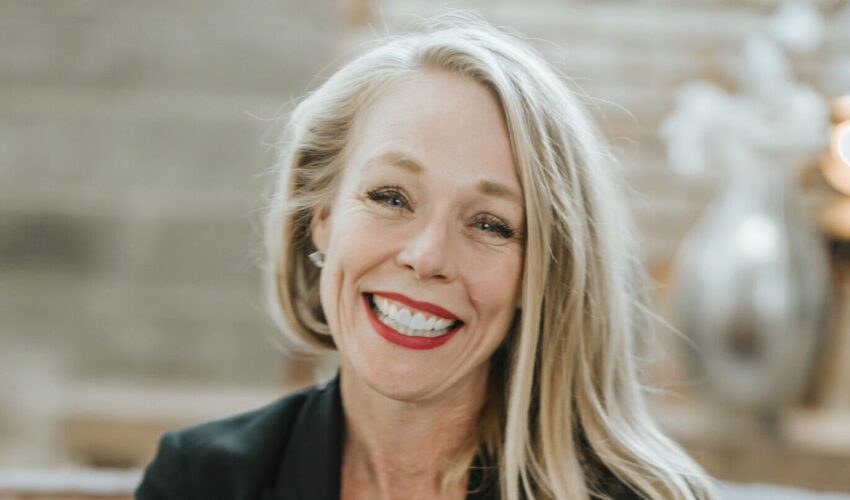Optimize your business’ board: Attend this upcoming Board School
Feb. 17, 2021
This paid piece is sponsored by the Prairie Family Business Association.
Whether your business uses a board of directors, is thinking about starting one or if you serve on a board, an upcoming Board School could be for you.
Prairie Family Business Association’s Board School is designed for business owners who:
• Are considering establishing an advisory or fiduciary board.
• Want to increase the value and effectiveness of their current board.
• Are hesitant to establish a board because of a presumed loss of control.
It is also a good fit for individuals who want to be board members and who want to optimize their service and gain clarity on role expectations, as well as for family members who want to gain a better understanding of a board’s role and how to best work together.
The Board School starts April 28 with a session from 1:30 to 4:30 p.m. and meets monthly for 12 sessions. Participants can join virtually or in person in Sioux Falls.
We got a preview of what to expect from facilitator Larry Hause.
Hause, owner of Hause Family Business Transitions LP, is a nationally recognized family business transition consultant, lawyer and author who specializes in helping owners resolve difficult, contentious and seemingly “impossible” transition challenges in a low-risk, highly effective manner.
He specializes in “transitions that are substantial, complex and frustrating and that can drain hope from the individuals involved.”
Growing up in a family business, Hause learned firsthand the benefits and challenges of being part of a family-owned company. He decided in high school to pursue a law degree and help family business owners with transition, which is what he has done for 34 years.
For business owners considering establishing a board, what are some ways to know if it’s the right move for your organization?
If you are an owner and you’re thinking about wanting to transition from being the senior leader of your business – you might want to think about retirement, maybe you’re thinking about taking more time off or having someone else run the operations so you can get back to doing what you like – those are times a board can really help you.
You’re hiring someone to run your business, so how do you relate to that person? If you’re still working in the business, you’re working for that leader. But you are also the owner and founder and key person, so if you formalize the board, that gives you a place to sit as a sort of supervisor of the person running the business, so that person knows what your role is and knows how to interface with you and you with them. The board structure gives you definition if you want to transition out of management.
The other thing is if you want the business to continue beyond you, you must think about who will carry out your functions as the president. But you’re also probably the primary owner. What do you do as an owner? You may not have thought about it much, but you are doing the work of ownership. And if you’re the primary decision-maker, not only are you doing the work of the president and the owner, you’re also doing the work of the board. Every business has management, ownership and a board. Your succession plan needs to transition your functions not only as president, but also as owner and the board.
Tell us a bit about the format for the school. Will there be much interaction among participants? What can they expect?
I do see this as a school. You are learning not only the ideas and theories, but there is a lab to it, a practicum. It is hands-on. You have the book learning in a biology class but also a lab where you dissect it. So we have people practice the role of a director, of being a manager reporting to a board or an owner presenting to a board, so people can step into the roles and learn from it. We do a lesson and then several exercises, so people can get a feel for what that’s like, and that always prompts discussion. Owners will present an ownership problem to the board, which requires the group to figure out what is an owner problem versus a management problem.
And we have them address real-life situations they are dealing with in their business. Because it is an intimate class built on confidentiality, people want to share and really want to know how this can help them. Hopefully, they will walk out with ideas about how to work through their own issues because we did it in class.
For those businesses already working with a board, how will the school help them assess how it’s working and better utilize it?
Business owners either dislike boards and do not want one or see value, or the board they have isn’t working well. At this school, you will get an idea of what you can really expect from a board and then ask yourself: Is this what is going on in my business?
We are not only going to give them chances to practice but some tools they can take back to their business and use to help frame up agendas for board meetings. If they are dealing with ownership, how do you frame that up between owners and board? Or if management is coming with their strategic annual plan, how does a board evaluate that? How do you run a meeting? How do you keep owners and management separate in a meeting?
This is a low-risk way to get high-quality information. We have multiple hours of learning here that goes on, both hands-on learning and book learning. It is the most cost-effective way to get a perspective and try on some things with very little cost. And that is huge. We have decades of experience and are giving our best thinking.
What’s the biggest hurdle family business owners tend to encounter in working with a board?
The biggest problem I have found is almost everything people know about boards is built on boards of public companies. Those are board management-centric. That’s the focus. In family businesses, you have a concept of owners you don’t have in a public company. So what is the role of owners? That is something few books on boards will talk about because most everyone deals with public companies. They rely on the market to determine who the owners are. One of the biggest hurdles is how do owners fit in. People do not understand that. Directors are overly deferential to owners or ignore them.
And, on the other side, what’s the biggest mistake or misstep new board members tend to make, especially when serving on the board of a family business?
When I started the school, it was designed to create a pool of people who understand what it means to be good directors for family businesses. Most potential directors know about boards, but their idea of what a board is supposed to do reflects the public company model. The problem with this is ignoring the role of ownership. In a family business, the role of owners and family is critical. Perhaps as a result, the Board School ended up attracting owners of family businesses. Having said that, anyone who is sitting on a board or wants to would benefit from coming to this school because we will introduce the concept of ownership, which is probably new for them.
How is Board School a fit for other family members within the business?
Everybody has a role. Everybody has a place in a family business. And everybody in senior management does. So how do they relate, what do they do? If you are a nonfamily senior manager, maybe the president or CFO, a key member of the management team, understanding how management is supposed to relate to the family and how management works with a board and how a board works with owners and owners work with family is very helpful. Not only do you know how you can play, but you can help others understand what is going on. When people get out of their lane, you can provide some direction. Junior family members working in the company can learn about their roles and how they fit. It is all about the successors. It is much more effective to have three, four or five people attend than it is to have one.
The Prairie Family Business Association is an outreach center of the USD Beacom School of Business.









